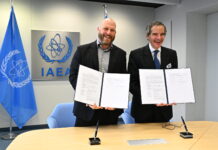Israel Strikes Houthi Targets in Yemen in Response to Tel Aviv Attack
In a significant escalation of regional tensions, Israel has launched airstrikes on Houthi targets in Yemen. This military action comes as a direct response to an attack on Tel Aviv, intensifying the already volatile situation in the Middle East. This news has been trending heavily on Google searches today, reflecting its global impact and the widespread interest it has generated.
According to a report by Politico, the strikes on Yemeni soil mark Israel’s first military action in Yemen since the Israel-Hamas conflict reignited in October. For more detailed information, you can refer to this Politico article.
Background and Context
The Houthi movement, officially known as Ansar Allah, is a Shia Islamist political and armed movement originating from northern Yemen. They have been engaged in a brutal civil war against the Yemeni government, which is backed by a Saudi-led coalition. The Houthis are often perceived as being supported by Iran, adding another layer of complexity to the Middle Eastern geopolitical landscape.
The recent attack on Tel Aviv has been attributed to the Houthis, although specifics about the nature of the attack remain sparse in public reports. In response, Israel has targeted sites within Yemen believed to be Houthi strongholds or facilities.
The Strikes and Their Impact
The Israeli military has not disclosed the specific targets or the outcomes of the strikes. However, analysts believe that these targets likely include military installations, weapons depots, and possibly command centers used by the Houthi forces. This action is seen as a message to Iran and its proxies that any aggression towards Israeli territory will be met with a robust response.
Reactions and Implications
The international community has offered mixed reactions to the Israeli strikes. Some nations have expressed support for Israel’s right to defend itself, while others have called for restraint to avoid further escalation in an already fragile region.
The United States, a key ally of Israel, has reiterated its support for Israel’s right to self-defense but has also urged caution to prevent broader regional conflict. On the other hand, Iran has condemned the strikes, accusing Israel of further destabilizing the region.
Historical Context and Broader Implications
Israel and Yemen have no formal diplomatic relations, and this is the first reported instance of direct military engagement between the two nations. The Houthis have occasionally expressed hostile rhetoric towards Israel, but actual confrontations have been limited until now.
The timing of these events is crucial. The Israel-Hamas conflict, which erupted in October, has already strained regional relations and drawn international attention. This new front in Yemen complicates the situation further, potentially drawing in more regional and global powers into the fray.
Technical Jargon Explained
Airstrikes: These are attacks carried out by aircraft, often targeting specific military or strategic locations. They are a common military tactic used to exert pressure or retaliate against hostile actions.
Houthi Movement: A political and armed group in Yemen, primarily composed of Shia Muslims, engaged in a civil war against the Yemeni government.
Geopolitical Landscape: This term refers to the political and geographic factors that influence a region’s politics and relations among countries.
Additional Information and Public Reaction
Public reaction to these developments has been swift and varied. Social media platforms have seen a flurry of opinions, with many users expressing concern over the potential for a broader conflict. Some voices are calling for immediate diplomatic efforts to de-escalate tensions, while others support Israel’s decisive action against perceived threats.
Expert Opinions
Experts in Middle Eastern politics have weighed in on the situation, offering varied perspectives. Some argue that Israel’s actions are a necessary deterrent against further aggression, while others warn that such strikes could provoke more intense retaliatory actions from the Houthis and their allies.
Potential Future Developments
The situation remains fluid, and the potential for further escalation cannot be ruled out. Diplomatic channels are likely to be active in the coming days as various stakeholders seek to navigate this complex crisis. The international community will be closely monitoring the situation, hoping to prevent a broader conflict that could have severe humanitarian and geopolitical consequences.
Conclusion
The Israeli airstrikes on Houthi targets in Yemen represent a significant development in Middle Eastern affairs. This action underscores the intricate web of alliances and enmities that characterize the region. As the world watches closely, the hope is that cooler heads will prevail and that diplomacy will find a way to de-escalate the situation.
For more detailed information on this breaking news, you can refer to the Politico article. The unfolding events highlight the complexity and volatility of Middle Eastern geopolitics, reminding us of the delicate balance that must be maintained to ensure regional and global stability.
This news, trending heavily on Google today, serves as a stark reminder of the interconnected nature of global events and the ever-present need for vigilance and diplomacy in international relations.


































